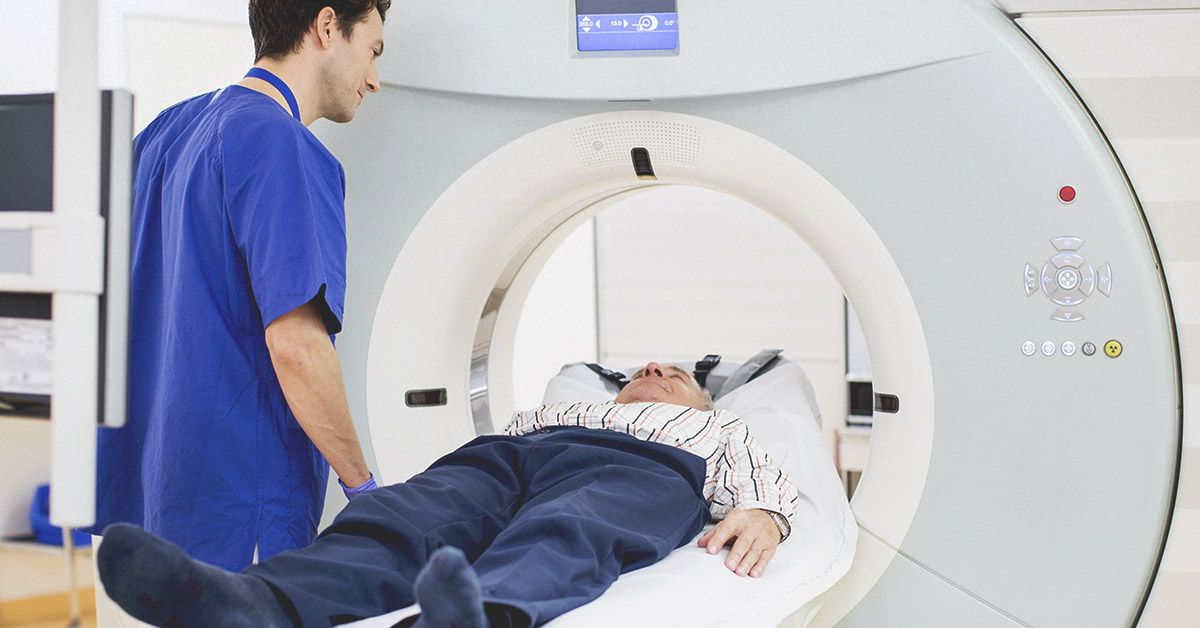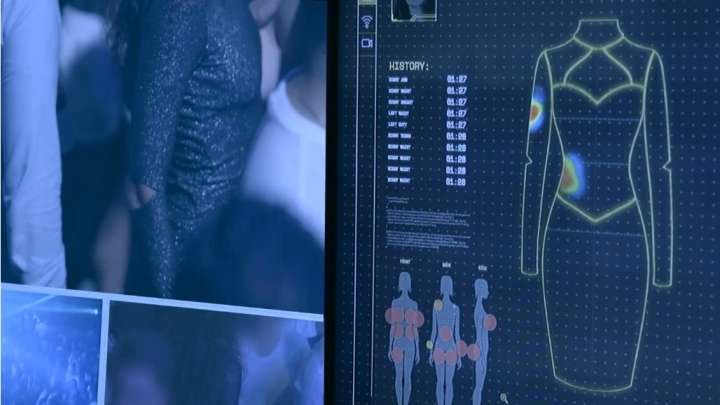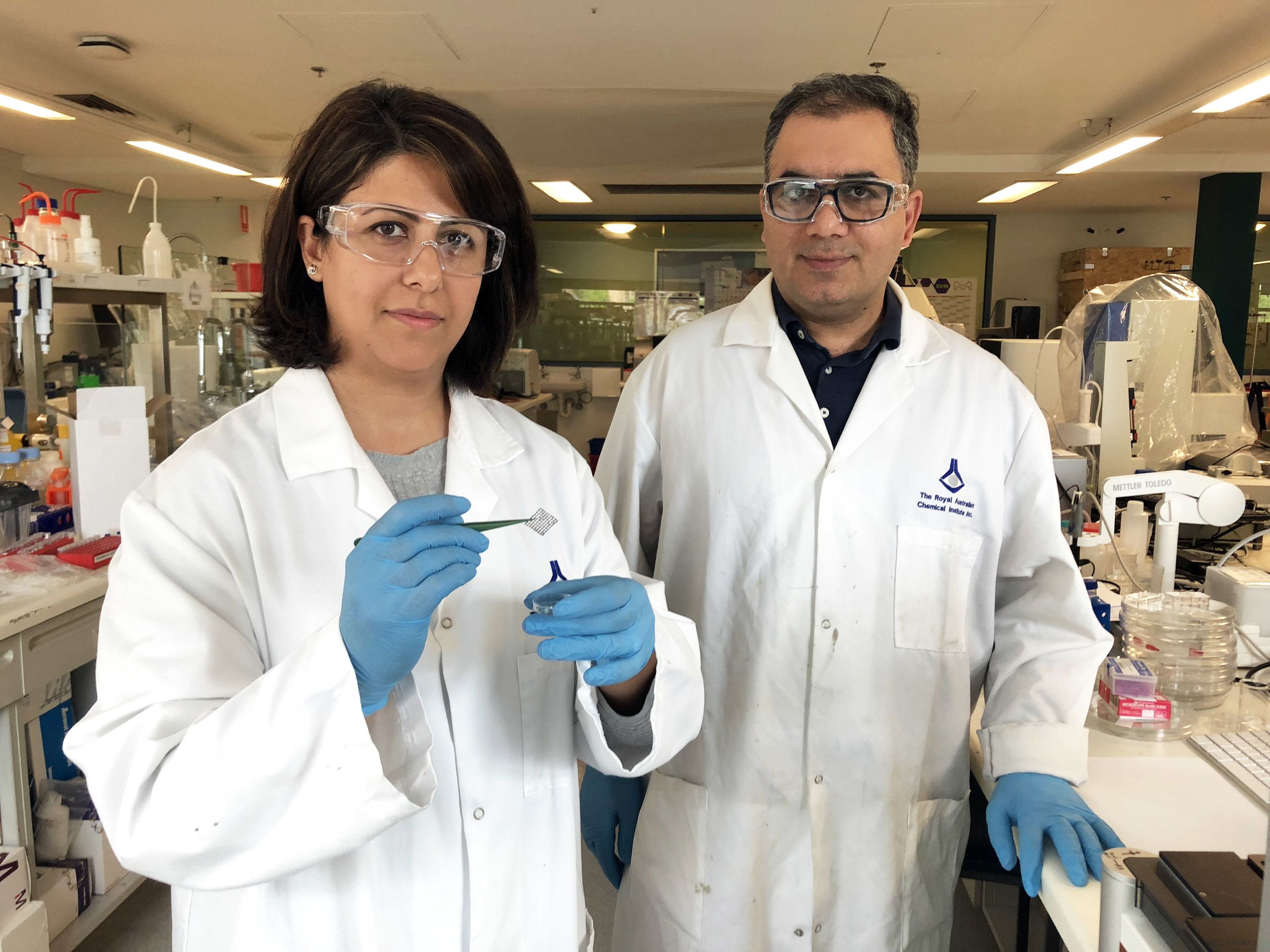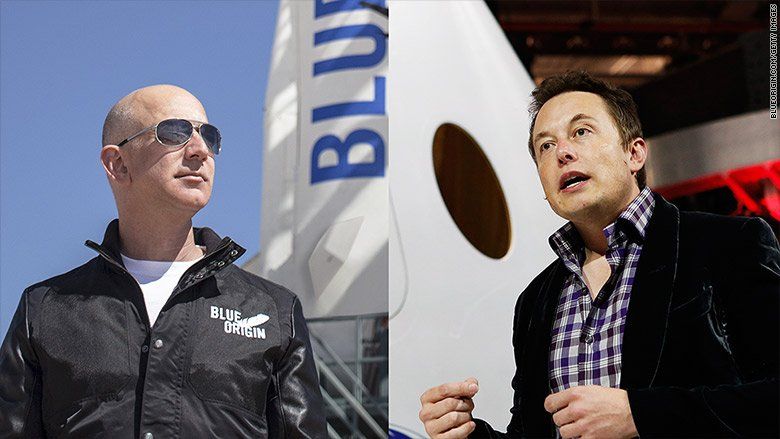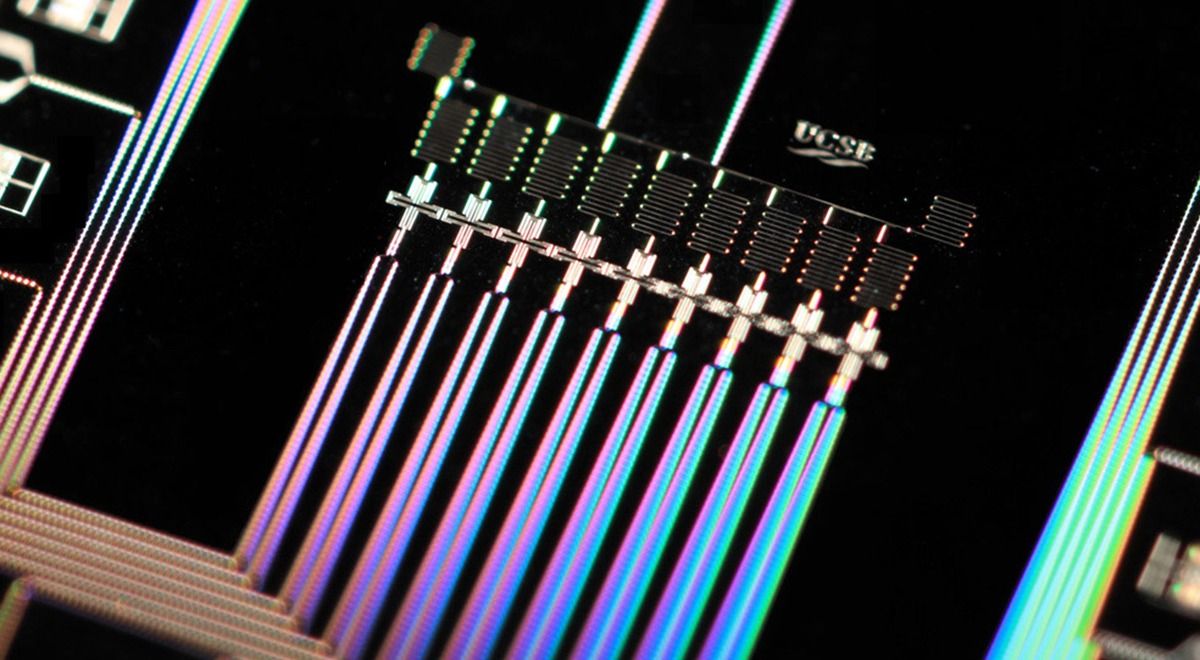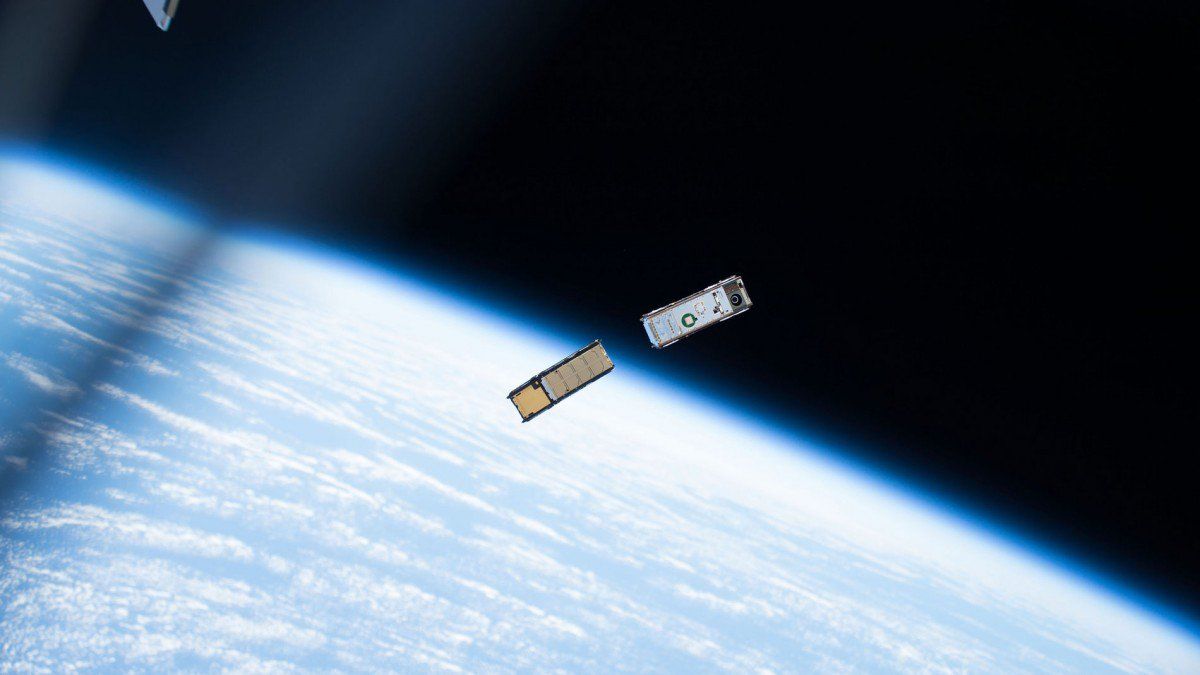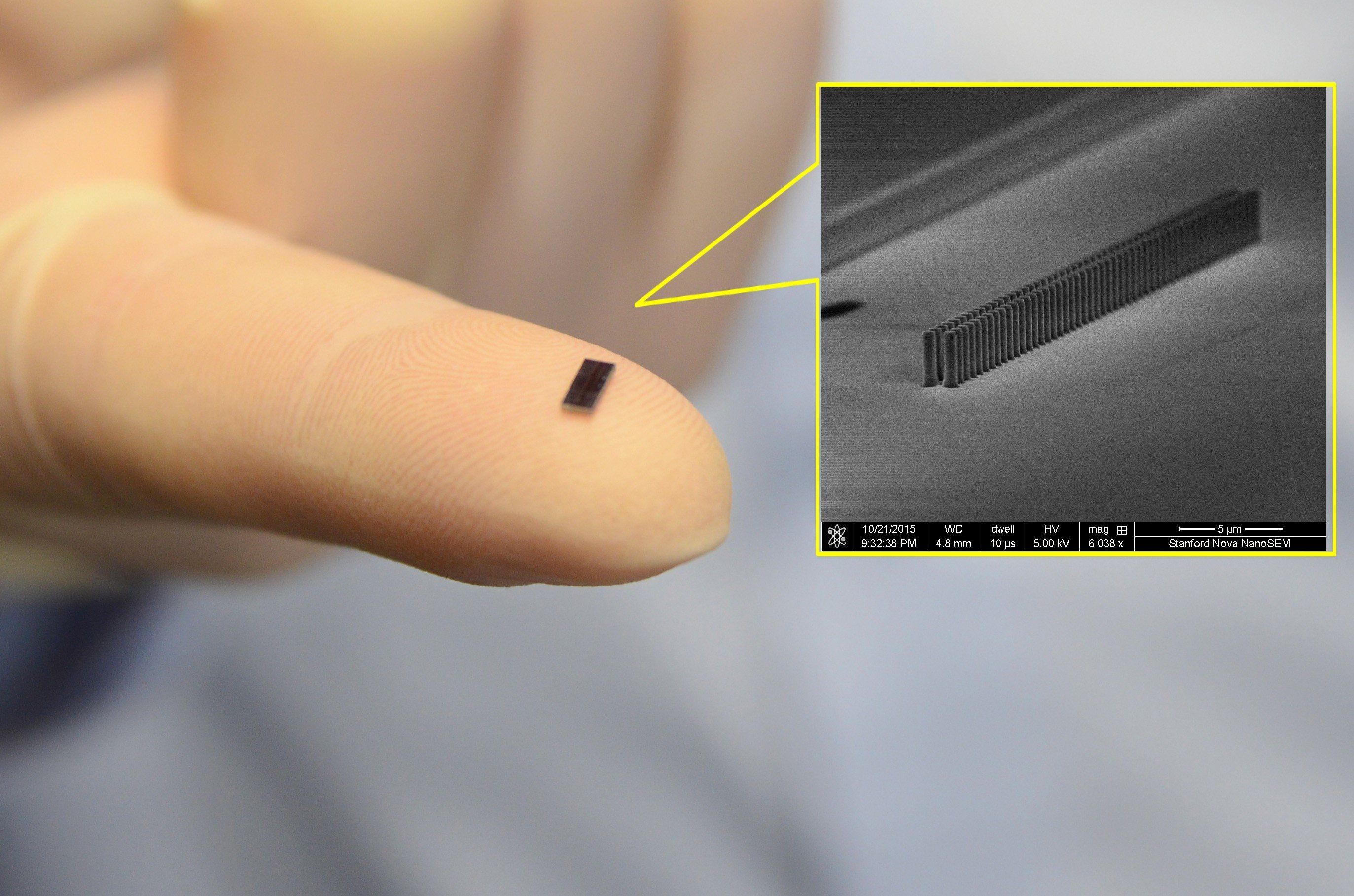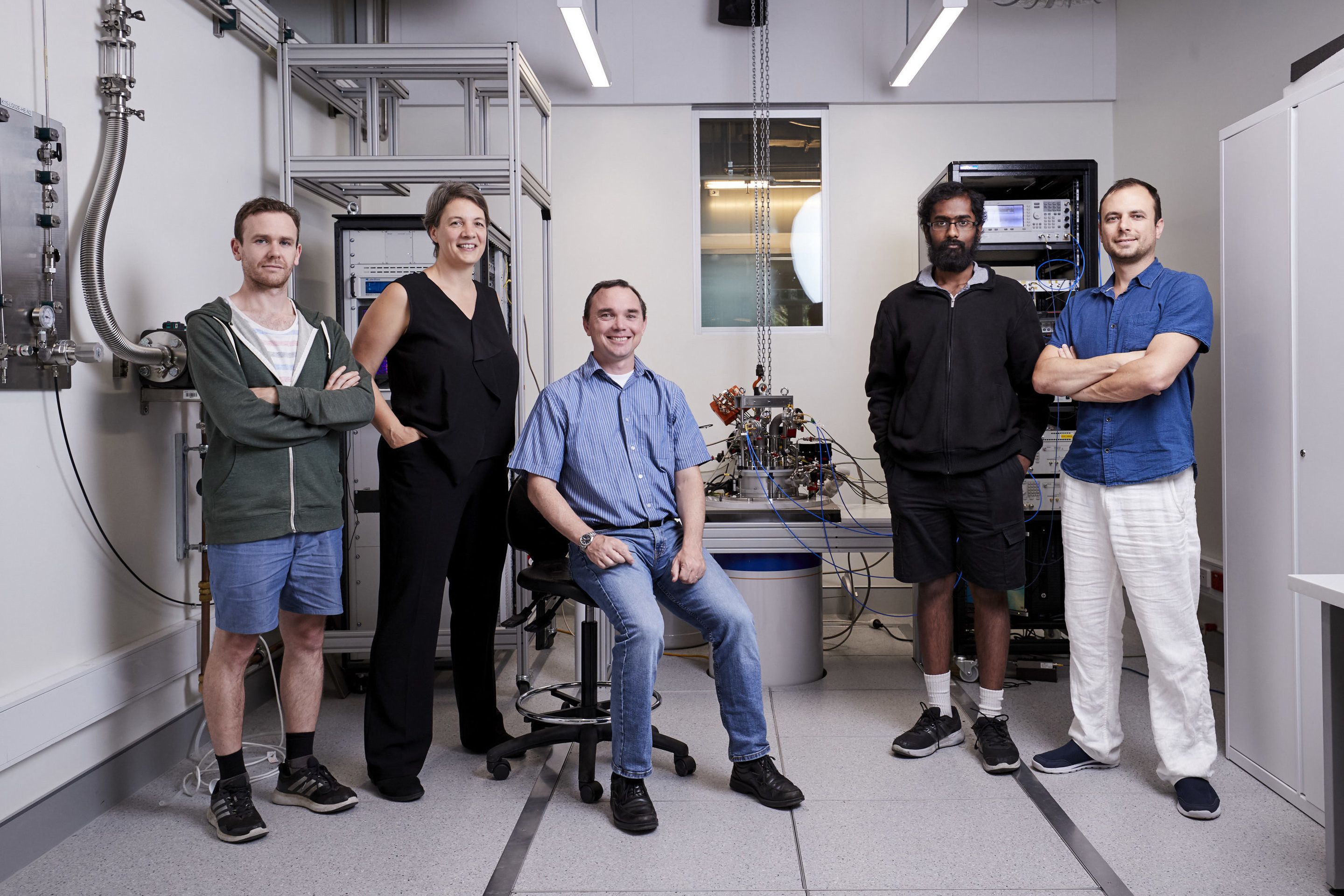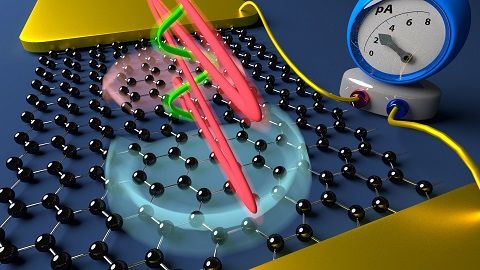
IMAGE: The driving laser field (red) ‘shakes’ electrons in graphene at ultrashort time scales, shown as violet and blue waves. A second laser pulse (green) can control this wave and thus determine the direction of current. (Image credit: FAU/Christian Heide)
Being able to control electronic systems using light waves instead of voltage signals is the dream of physicists all over the world. The advantage is that electromagnetic light waves oscillate at petaherz frequency. This means that computers in the future could operate at speeds a million times faster than those of today. Scientists at Friedrich-Alexander University (FAU; Erlangen-Nurenberg, Germany) have now come one step closer to achieving this goal as they have succeeded in using ultra-short laser impulses to precisely control electrons in graphene. The scientists published their results in Physical Review Letters.
Current control in electronics that is one million times faster than in today’s systems is a dream for many. Ultimately, current control is one of the most important components as it is responsible for data and signal transmission. Controlling the flow of electrons using light waves instead of voltage signals, as is now the case, could make this dream a reality. However, up to now, it has been difficult to control the flow of electrons in metals as metals reflect light waves and the electrons inside them cannot be influenced by these light waves.
Continue reading “Ultrafast laser pulses control electrons in graphene, making ultrafast computing possible” »
